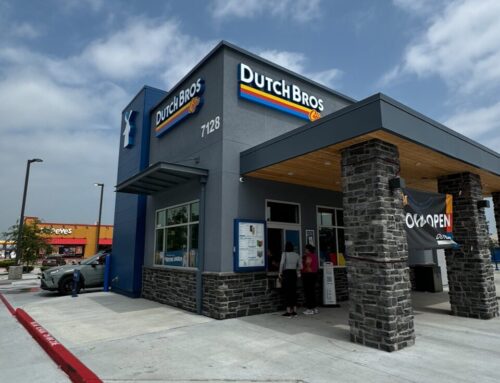For small businesses, loans can be a lifeline — the difference between thriving and shuttering. But lending information is often scattered, complicated and confusing.
At the same time, some business owners in the Southwest Management District who use English as their second language struggle when information isn’t available in their native tongue.
But for the last 14 years, local business owners looking for a loan – and business resources in general – benefitted from the partnership of Mark Winchester, the U.S. Small Business Administration’s deputy director for the Houston district. Through trainings, workshops, lender panels and other events, Winchester has helped pave the path to success for entrepreneurs and business owners alike in the District’s Chinatown corridor.

Mark Winchester
“Businesses need to work on their finances and their marketing,” said Winchester, adding that in Houston, residents speak upwards of 140 languages . “Offering relevant training in people’s dialect or language is key. The SBA has a responsibility to offer our programs to everyone.”
To the delight of the Southwest District board members he has worked with so smoothly, Winchester was promoted in March to district director.
“Mark Winchester has been a hard-working advocate for economic development in our District for many years,” board Chairman Kenneth Li. “His friendly presence and patient approach to this job are some of the other reasons why we were not surprised that he had earned an important promotion.”
Over the years, Winchester has been a loyal, constant presence at SWMD committee and board meetings via Zoom or in person, making owners aware of valuable business resources. He’s worked with local partners like the Texas Gulf Coast Small Business Development Center and SCORE, which help to bring resources and trainings in Mandarin and Vietnamese to owners operating in the district.
Business owners have received assistance with market research, including ring studies – a collection of demographic data about areas that circle a business — plus business plans, competitor lists, and SWOT (which stands for strengths, weaknesses, opportunities and threats).
“Another important tool is benchmarking, comparing your business to the rest of the industry,” said Winchester, who previously served as the assistant director for the Small Business Development Center at the University of Texas Rio Grande Valley. “Also, how does your net income compare to the rest of your industry? I like to call all this a financial tune-up. Just like you get a tune up for your car, you need one for your business.”
Equally as integral is training to make business owners aware of, and equipped to pursue, federal contracting opportunities, which abound in the Houston area through more than” 100 federal agencies.
The federal government spends three quarters of a trillion dollars in contracts a year, with a goal of nearly a quarter going to small businesses. In 2023, some $1.96 billion in federal contracts was awarded to small businesses in southeastern Texas’ 32-county SBA region. Around $65 million of those were “8(a)” contracts. The SBA 8(a) Business Development program assists socially and economically disadvantaged small-business owners in obtaining government contracts.
“The federal government needs all kinds of services—professional, scientific, engineering, landscaping services,” Winchester said. “It runs the gamut.”
In 2023, the 32-county SBA region – which includes Harris County – ran 1,900 outreach efforts, including training visits and counseling sessions, including a three-part Access to Capital hybrid workshop series last year.
For this year, Winchester helped organize an event, in conjunction with the Asian Chamber and Indo-American Chamber of Commerce, to increase awareness among small businesses of 8(a) contracts for May. The deputy associate administrator for 8(a) Business Development Program will come to Houston for the May 8 event. On July 16, there will be a “How to Conduct Federal Market Research” workshop.
In recent years, data have shown progress in owners from a variety of backgrounds getting better access to loans. From fiscal years 2019 to 2023, lending activity increased for minority-owned and rural businesses in the Houston District .
Winchester said local partners have been critical to that success.
“I’m very grateful to the district and to the lenders supporting businesses,” he said.
— by Deborah Lynn Blumberg








